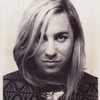All Photos by Scott Kaplan
Advertisement
"I know they call him the Godfather of House but I look at him as the Frank Lloyd Wright of house," says Joe Shanahan, a longtime friend of Knuckles and owner of Chicago clubs Smart Bar and Metro. "He's the architect of house. He was beautiful."Mingling with the crowd and alternating between sipping cocktails, laughing with friends, and dancing to a classics set by Chicago fixture Lady D were the city's house elite including former owner of The Warehouse Robert Williams, longtime friend and now head of the Frankie Knuckles Foundation Frederick Dunson, and Shanahan. All were gathered to propel the foundation forward with fundraising as much as they were there to celebrate house music and the city where it was born.
From top: Lady D with Joe Shanahan, Frederick Runson, Lady D with Billy Dec
Advertisement
Advertisement
Advertisement
Robert Williams
Advertisement
